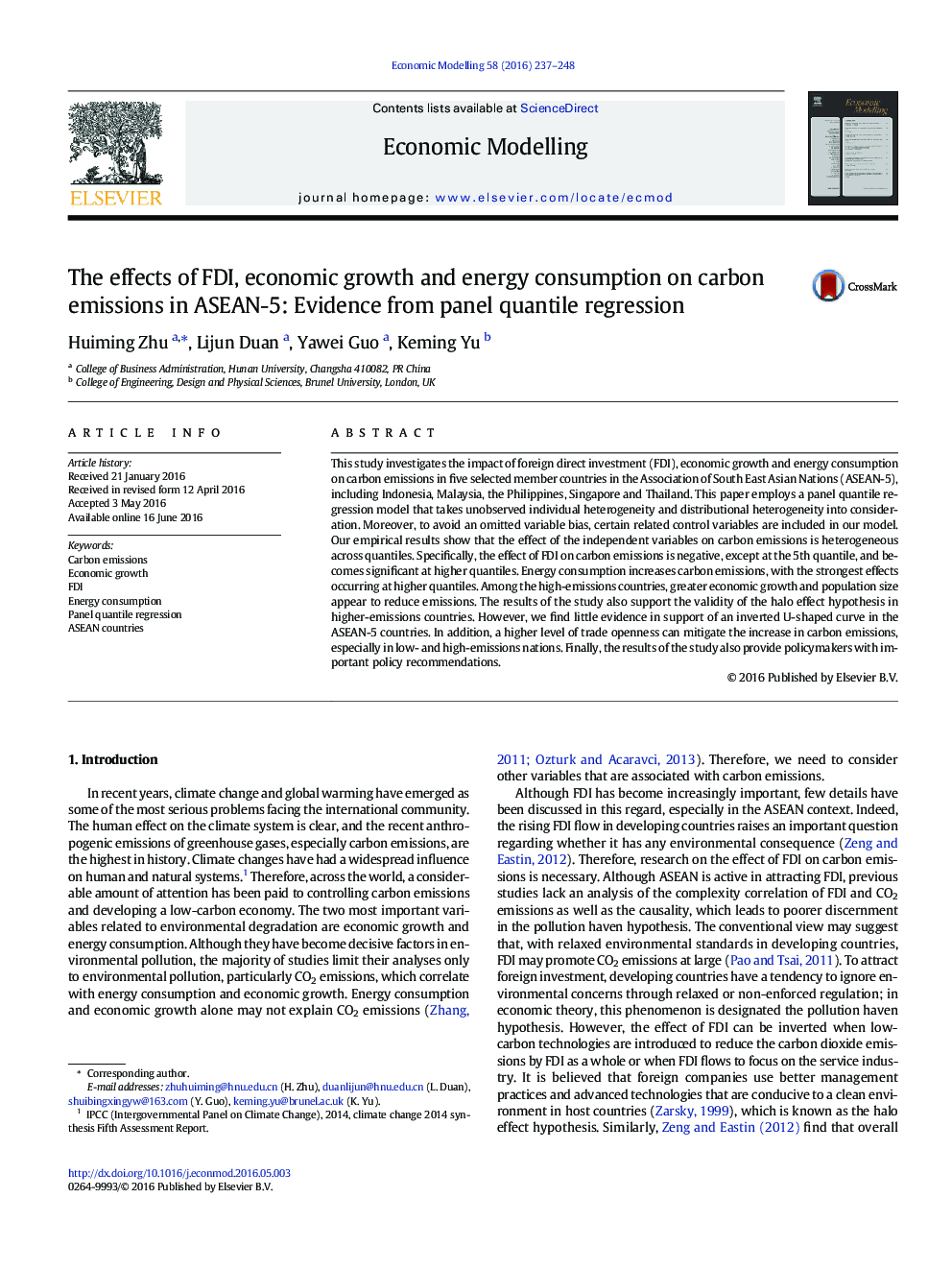| Article ID | Journal | Published Year | Pages | File Type |
|---|---|---|---|---|
| 5053479 | Economic Modelling | 2016 | 12 Pages |
â¢Effects of FDI, economic growth and energy consumption on emissions are tested on different quantiles.â¢Effects of the independent variables on emission are heterogeneous across quantiles.â¢FDI can mitigate carbon emissions in high-emissions ASEAN countries.â¢Economic growth and population size have a negative effect on emissions in high-emissions countries.
This study investigates the impact of foreign direct investment (FDI), economic growth and energy consumption on carbon emissions in five selected member countries in the Association of South East Asian Nations (ASEAN-5), including Indonesia, Malaysia, the Philippines, Singapore and Thailand. This paper employs a panel quantile regression model that takes unobserved individual heterogeneity and distributional heterogeneity into consideration. Moreover, to avoid an omitted variable bias, certain related control variables are included in our model. Our empirical results show that the effect of the independent variables on carbon emissions is heterogeneous across quantiles. Specifically, the effect of FDI on carbon emissions is negative, except at the 5th quantile, and becomes significant at higher quantiles. Energy consumption increases carbon emissions, with the strongest effects occurring at higher quantiles. Among the high-emissions countries, greater economic growth and population size appear to reduce emissions. The results of the study also support the validity of the halo effect hypothesis in higher-emissions countries. However, we find little evidence in support of an inverted U-shaped curve in the ASEAN-5 countries. In addition, a higher level of trade openness can mitigate the increase in carbon emissions, especially in low- and high-emissions nations. Finally, the results of the study also provide policymakers with important policy recommendations.
